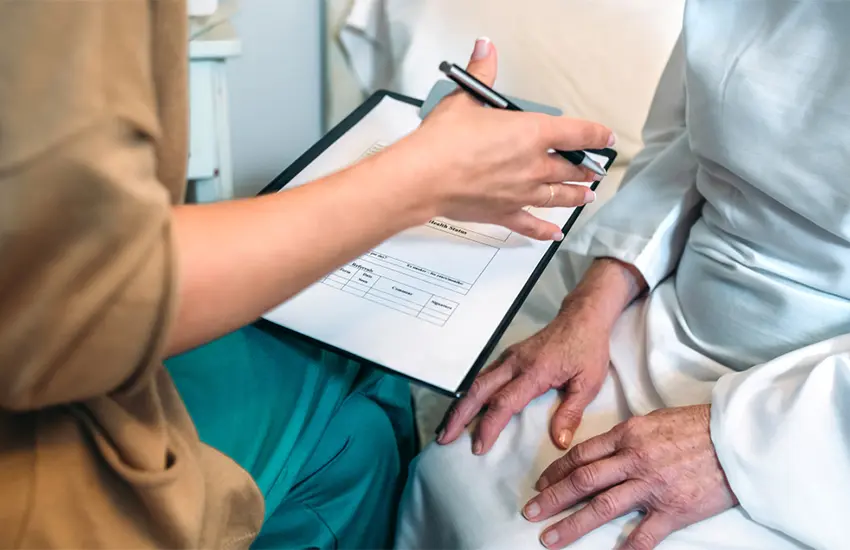Every progress we make against disease is because of research studies. Clinical research trials help doctors and scientists understand what treatment works best and if it’s safe or not. Choosing to volunteer in a clinical trial is never an easy decision for you or your family. However, going in informed and prepared, along with understanding the risks and rewards will make you feel better about your decision.
Always remember, your participation in a research trial is of your own volition and as the volunteer, you hold the power.
What are Clinical Trials?
Clinical trials are research studies that are specifically designed to answer questions about a disease condition and its potential treatment. In research studies patients or healthy volunteers participate to help advance medicine. It helps us find new potential treatments and vaccines that may help you and others suffering from the disease. There are many research studies that promise novel treatments which would help participants heal. While other studies don’t directly benefit the participants, they do allow doctors and scientists to advance their understanding of the condition. And it helps us learn more about the disease. Either way, clinical trials are vital to advancing medicine and improving healthcare.
The idea for a clinical research study always begins in the laboratory. Researchers test out promising new remedies and procedures in lab and in animal studies before the experimental treatment moves on to clinical research trials. Through research trials, we’re able to learn more about the treatment, its risks, and the level of its safety and efficacy.
Risks vs. Benefits
Every clinical trial comes with its own set of risks and benefits. But for the most part, they are safe and they hold some of the same potential advantages. To help you make the best decision for your health, it is important to understand the risks and benefits that come with participating in clinical trials.
Benefits
- Participants have an opportunity to help others by contributing to medical research aimed at improving treatments and diagnosis methods. Modern medicine today is because of people who stepped forward and volunteered to advance medicine.
- Volunteering in studies allows you to gain access to treatments that are not yet available to the general public. The treatment you receive may be safer or better than the current options available to you.
- You receive study-related care while participating in research trials that are covered by the sponsor.
- As a participant, you’ll receive expert study care and careful monitoring from a study care team which includes doctors and nurses. They’ll monitor your health condition and check for any side effects from the new treatment. Your health will be in safe and capable hands, always.
- Many studies, including our clinical research studies, cover all expenses of travel, and patients receive free-of-cost care from doctors & nurses.
Risks
- Clinical trials may hold risks that include unknown side effects. A trained staff of doctors and nurses are required to monitor your health throughout the duration of the study.
- Many a time the new and potential treatment may work for some and not for others. This means it might not necessarily work for you.
- If you take part in a randomized clinical trial, you might not have a choice on the treatment you receive. If it’s a blinded study, you and your doctor might not know which treatment you receive. You might either receive the study medication or the placebo.
- Some trials may not be covered by insurance. Before you participate in a trial, be sure to talk to your insurance provider and the research staff to make sure you have all your bases covered.
However, at Revival Research Institute, you do not need insurance to participate in a research study.
Every medical treatment, procedure, and medication has its risks. But, what matters is that the benefits far outweigh the risks. For many people volunteering in studies, the traditional standard of care no longer works and they’ve run out of options. Research studies provide hope and may be able to help find answers that are otherwise not available.
Before Participating: Informed Consent Process
As a participant in a research study, your safety is extremely important. All clinical researches, conducted in the USA are scrutinized by IRBs (Institutional Review Boards) and the FDA (U.S. Food and Drug Authority). Throughout the duration of the study, these regulatory bodies ensure that participants in research studies are not exposed to any unreasonable risks, their rights are protected and, they have access to reliable information about the study.

As per the FDA and the principles of GCP (Good Clinical Practice), every institution that conducts clinical research studies must provide its prospective participants with complete and accurate information about the research study irrespective of their participation and must prioritize their safety and rights. Before volunteering for a research study, you will be given complete information about the trial including how many visits you’re expected to make, what your rights are as a participant, what may be expected of you throughout the study, and the potential risks and benefits. The research staff will discuss in-depth about your participation. They will provide you with an Informed Consent document that states all your rights as a participant in clinical trials. This is a good time to ask any questions you might have about the study and the investigational medication.
Signing the Informed Consent document indicates that you understand all the potential risks and benefits that come with your participation, along with your rights as a volunteer. Remember, your participation in a research study is voluntary and you are free to leave at any time.
Will I get a placebo?
A placebo is a drug that may be in liquid, powder, or pill form that has no medicinal value. These are usually known as “sugar pills”. In research trials, a placebo is used to determine the effectiveness of the new treatment or drug. Often time, placebos are given in studies to a group of people to prove that the new potential treatment is better than no treatment. They are very rarely used alone in a clinical trial. Along with a placebo, you will receive the standard of care treatment or medication. In research studies that include the inactive drug, the doctors and the patients are unaware of who receives the placebo or the experimental drug.
Feel free to ask your clinical research coordinator if there might be a chance you receive the placebo instead of the study drug and discuss what decision might be the best for you with your family and your doctor.
Is my Information Safe?
We work hard to make sure your personal information is as safe & confidential as possible. According to GCP guidelines, researchers are strictly required to follow rules and regulations and conduct ethical research trials that protect your rights and ensure your safety as a participant. Your personal information will be protected in compliance with relevant laws such as HIPAA, and in the manner explained in the informed consent document.
Throughout the duration of the research study, you are assigned a special number, and your name and information are not disclosed. Vital information like your test results is uploaded on special forms with your assigned number and is only shared with the research staff. Sometimes, the research staff or members from the FDA might have to look into your data to ensure it is correct. However, your personal information is never given to anyone and, is not published in the research studies results.
What are the costs of joining a clinical trial? Will my insurance cover it?
In many research studies, including ours, volunteers are not required to pay for being a part of a trial. Your costs for all the tests and doctor visits are covered by the sponsor. Some sponsors are also known to pay for your time, travel, and mileage. All of Revival Research Institute clinical trials in Michigan, Arizona, and Texas do not require insurance.
Talk to the research staff if you have any questions or concerns about your insurance and any costs. It’s important to learn about what expenses will be covered before deciding to participate in any research trial.
Should I take part in a clinical trial?
This is a tough question to answer and only you can answer it. Before deciding to take part in a research study, do your homework, consult with your doctor and talk to your loved ones. Take as much time as you need to ask questions and make an informed decision. Every person’s reason for participating in a research trial may be different and unique to their situation.
Participating in a clinical trial is a voluntary and personal decision. Every year, millions of patients step forward and selflessly contribute to advancing modern medicine by participating in research trials. With your help and the hundreds of doctors, and nurses who work tirelessly, we aim to deliver better evidence for patient care through research trials.



